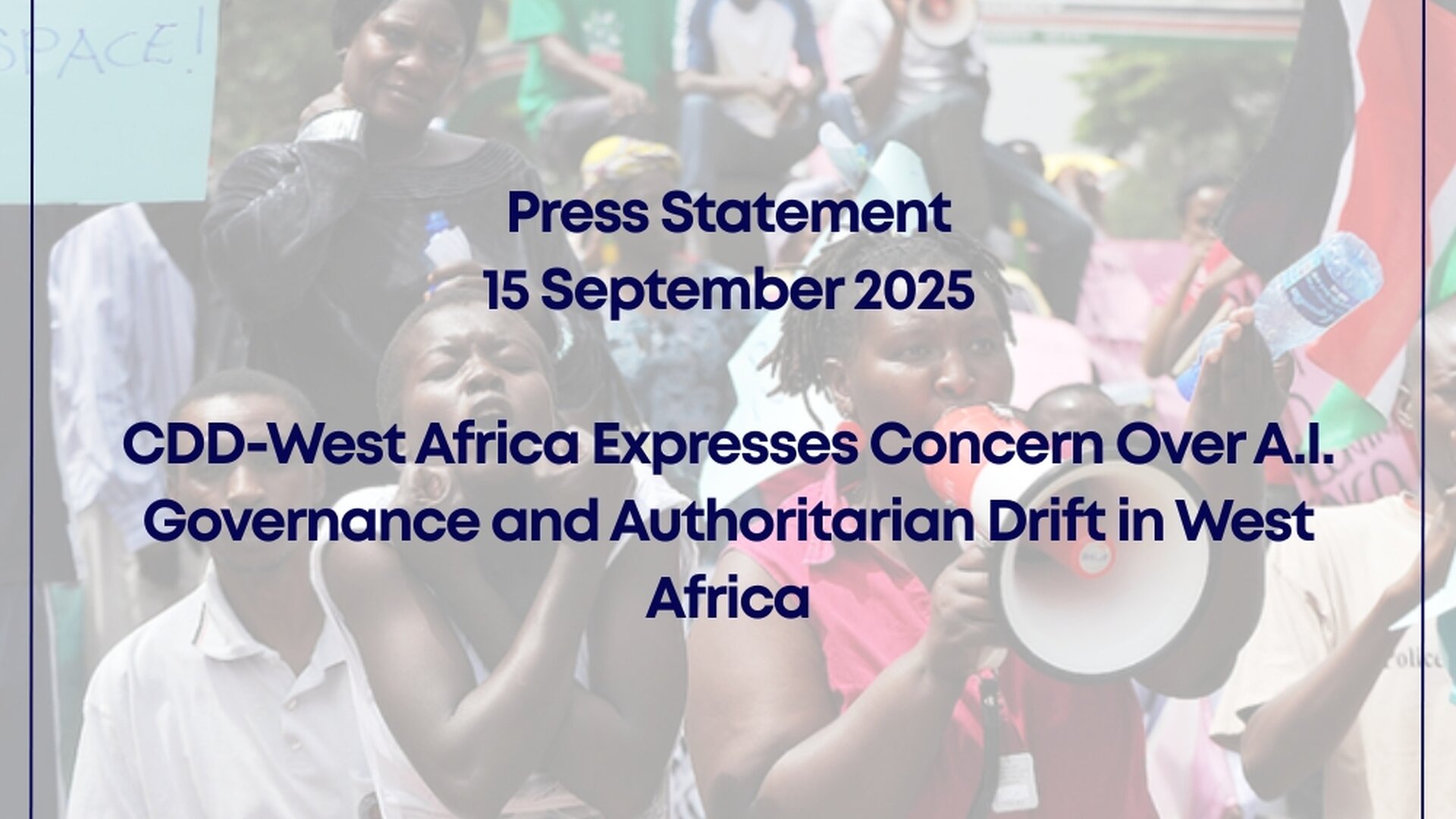
CDD-West Africa Expresses Concern Over AI Governance and Authoritarian Drift in West Africa
(Abuja, Nigeria) On this year’s International Day of Democracy, the Centre for Democracy and Development (CDD-West Africa) joins global voices in spotlighting the urgent need for democratic governance of Artificial Intelligence (AI). In line with the 2025 UN theme, “Ensuring effective governance of AI at all levels”, we draw attention to a growing concern across West Africa about the twin rise of military populism and platform-enabled authoritarianism.
In much of the region, we are witnessing a dangerous convergence. On the one hand, coup-installed regimes in Mali, Burkina Faso, Niger, Guinea (and Gabon in Central Africa) continue to consolidate power through force. On the other hand, they increasingly rely on technology, AI-powered tools, social media algorithms, and opaque content moderation systems, to shape public opinion, suppress dissent, and present authoritarian rule as a popular mandate.
As outlined in CDD-West Africa's recent background paper on Emerging Military Populism in Francophone Africa, this new brand of digital authoritarianism is not only armed with rifles and rhetoric, it is embedded in recommendation engines and reinforced by viral disinformation.
But the challenge goes deeper than algorithms.
Too often, global technology companies, especially social media firms, are treated as neutral platforms. In reality, they are political actors. Their internal policies, moderation practices, and business incentives directly affect what information circulates, what narratives gain traction, and what voices are silenced. As recent research shows, these companies are not passive conduits. They are organisations with decision-making power, shaped by internal hierarchies and geopolitical priorities, most of which are disconnected from the lived realities of African users.
This asymmetry matters. While platforms readily comply with laws and pressure in the Global North, they remain largely unaccountable in the Global South. Content moderation often lacks local language capacity, contextual understanding, or region-specific safeguards, leading to harmful decisions that distort democratic discourse or overlook emerging threats.
In Nigeria and across West Africa, where civic space is already shrinking and elections are increasingly contested, the unchecked influence of platform governance, and its entanglement with military regimes poses a real threat to democracy.
CDD-West Africa therefore calls for the following:
- National AI governance frameworks that prioritise transparency, ethics, and citizen protection, with clear regulatory oversight of both AI tools and the companies that deploy them;
- Regional coordination through ECOWAS and the African Union to address how AI and social media are weaponised in elections, security operations, and governance processes;
- Deeper scrutiny of social media companies operating in the region, including demands for algorithmic transparency, culturally competent moderation teams, and public accountability mechanisms; and
- Support for local research, civil society engagement, and public debate on the future of AI, disinformation, and platform power in West African democracies.
As we reflect on democracy in the digital age, we must ask: Who governs the platforms that govern our attention? Whose interests do they serve? Above, who holds them accountable?
Whether the uniform of power is military or corporate, the imperative remains the same: all forms of authority, human or machine, must be transparent, accountable, and answerable to the people.
Democracy must not only evolve, it must also defend itself; and that begins by governing both uniforms and algorithms.
SIGNED
Dauda Garuba, PhD
Director
Centre for Democracy and Development (CDD-West Africa)
